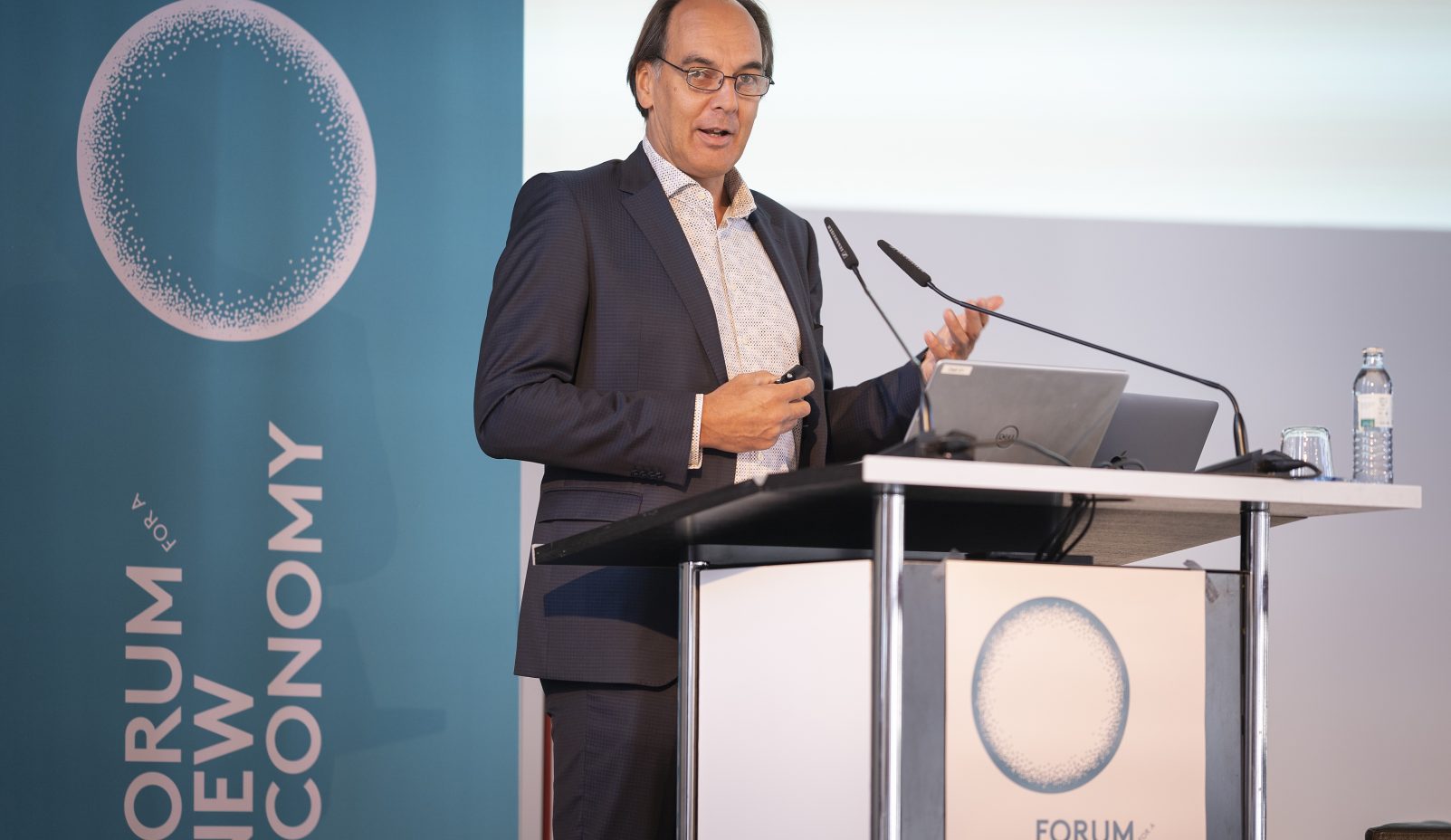NEW PARADIGM
Forum New Economy and Forsa: Majority of Germans support interventions in the economy
A Forsa survey commissioned by the Forum New Economy shows high approval for corona measures of the German government and a need for action in the economic system.
BY
THORE BECKMANNPUBLISHED
29. SEPTEMBER 2020READING TIME
5 MIN
Despite increasing criticism of the massive aid and intervention, a clear majority of Germans think it is right how much the state has intervened in economic events during the Corona crisis. Only 37 percent agree somewhat or completely that the government has intervened too much; 60 percent consider the course taken so far in the crisis to be somewhat or completely correct. These are the findings of a representative Forsa survey commissioned by the Forum New Economy on the occasion of a workshop on the future of the German economic model, which starts today.
According to the survey, a clear majority of German citizens also seem to see a fundamentally increased need for state aid. More than 60 percent (63) of those surveyed said that the economic system as it functions in Germany today should be improved “in some areas.” Nearly 30 percent even believe a “fundamental” overhaul is needed. Only 5 percent said that there was no need for change – although this is roughly across all parties. Among CDU/CSU supporters, only 9 percent said they were completely satisfied with the way the economy works in Germany.
The desire is expressed, among other things, in the question of how strongly the government should protect people when massive job losses threaten as a result of major upheavals such as digitization or globalization. In the survey, 71 percent agreed or strongly agreed that the state should provide greater protection. Only 20 percent disagree. Two-thirds of those surveyed also tended to agree or fully agreed that “elected politicians should once again have more influence on national legislation in view of advanced globalization”. Only 27 percent disagree. Only 31 percent of those surveyed would like to see globalization deepen further – 60 percent of Germans reject this more or less strongly.
Only one in three thinks the rich generally deserve their wealth.
The call for stronger protection is apparently directly linked to widespread concern about future economic and structural disruptions. Thus, 80 percent of all respondents agreed with the expectation that the risk of social decline would tend to increase or even increase sharply in the future; only 13 percent do not see this danger or tend not to see it. Here, too, the results cut across the supporters of all parties. 78 percent of CDU/CSU supporters and 79 percent of SPD voters expect the risk of social decline to increase. The figure is higher for the Left (92 percent) and lower for the FDP (77 percent).
One in two of those surveyed said that the principle of social equalization in Germany no longer works. Here, the proportion has fallen slightly compared with a corresponding survey from October 2019 – from 57 to 50 percent; here, the massive aid in the Corona crisis may have led to a decline in skepticism. In the current survey, the greatest skepticism was expressed by far by AfD voters (83 percent); in the FDP, just under 40 percent were skeptical about the balance. In the east, the proportion of skeptics is significantly higher than the national average – at 61 percent.
A total of 1033 people responded to the survey conducted by Forsa between September 10 and 17. Some of the questions were identical in wording to a previous survey conducted in October 2019, which was also commissioned by Forum New Economy.
The Forsa survey by Forum New Economy was also analyzed in detail by Der Spiegel: Here
The results of the survey were also presented at the seventh New Paradigm Workshop on September 28. The presentation can be found at the beginning of the following video.
